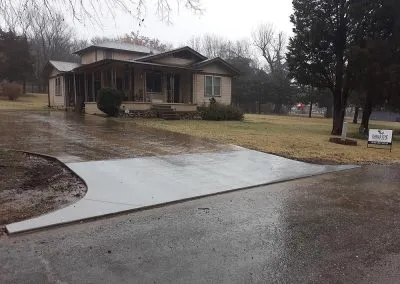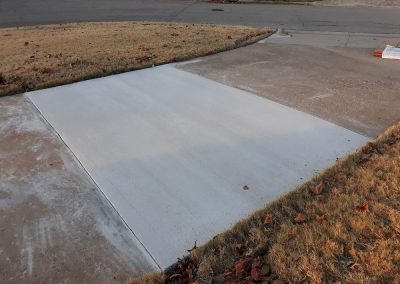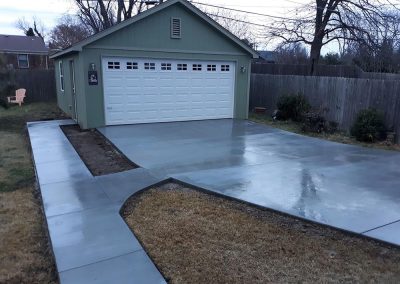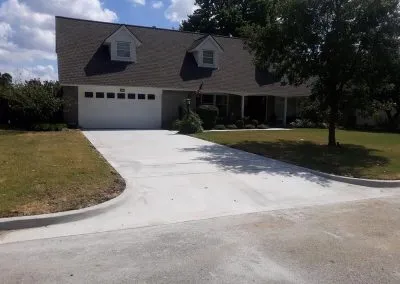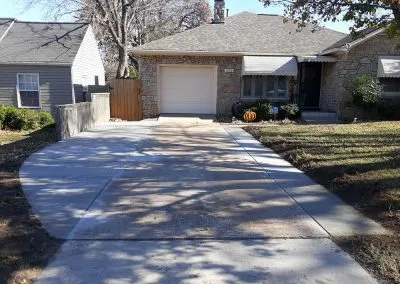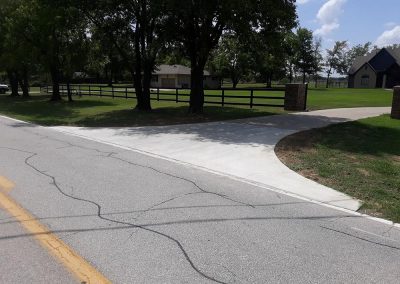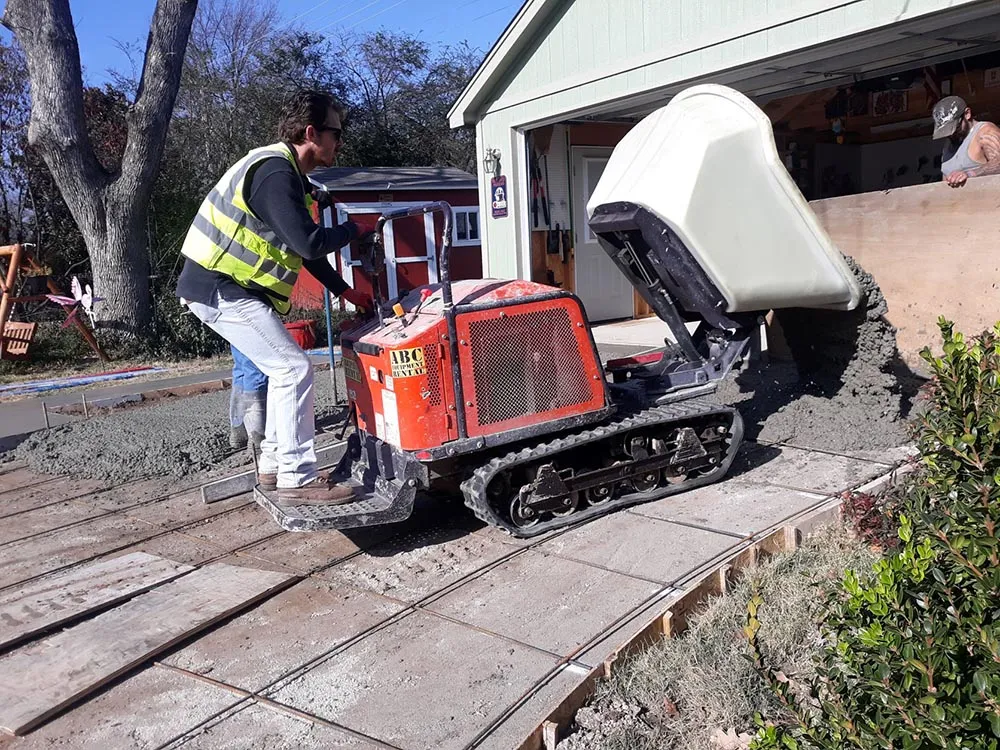
Concrete Driveways
A typical driveway within Tulsa and surrounding city limits will consist of two parts: The parking parking slab and the approach slab.
The parking slab is typically designed for one, two, or three car widths. It will have a thickness of 4 to 6 inches depending on load considerations such as RVs or agricultural equipment.
Parking slabs are often placed on-grade, meaning that the concrete is placed on compacted earth. It may have a grid of reinforcing steel placed throughout or along critical joint edges depending on the contractor’s recommendation or at the request of the owner.
It should be jointed during concrete placement or have joints cut with a saw as soon as the concrete initially cures. These joints should not exceed 12ft to prevent mid-panel cracking.
Concrete Approaches
The approach slab is the section of concrete between the street and the parking slab. It consists of the concrete from the curb and gutter back to the right-of-way limit. This is usually 12 feet on non-arterial residential streets. It is separated from the parking slab with an expansion joint and sometimes a 4-5 ft wide sidewalk.
Unlike the parking slab, the approach slab has a minimum concrete thickness of 6 inches and cannot have reinforcement present. The City of Tulsa concrete driveway standards require any new or reconstructed driveway approach to have a 6-inch compacted gravel base. Many older approaches are just 6 inch on-grade which necessitates excavation of the earth to make room for the gravel.
Finally, approach slabs are almost always within the city right-of-way and therefore must be permitted and inspected both before and after concrete placement.
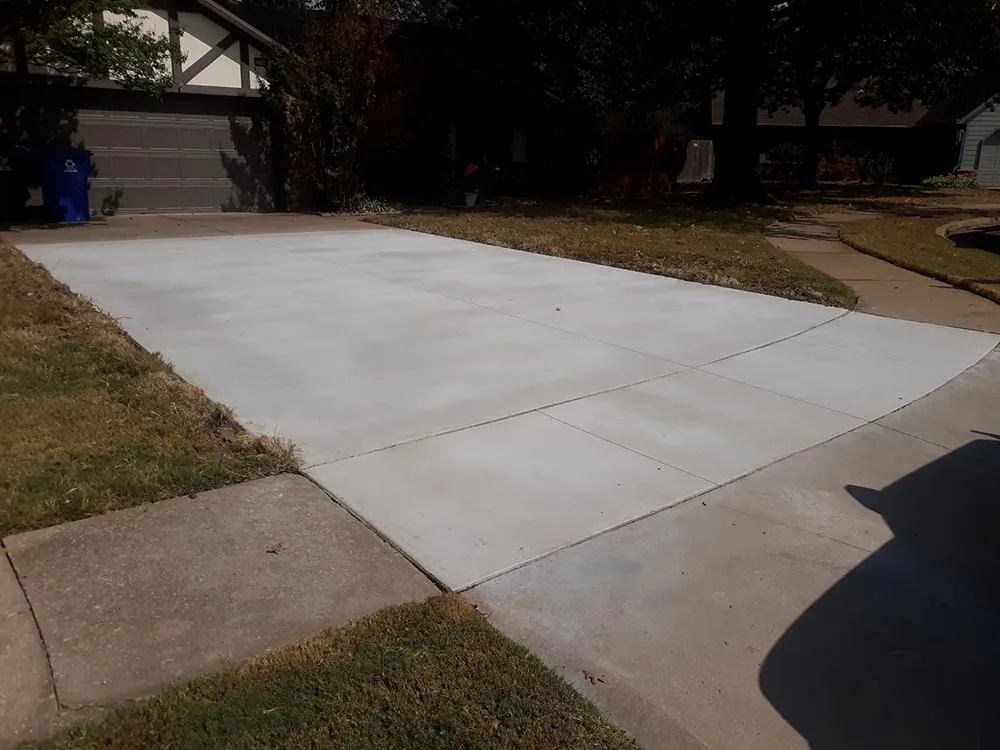
Driveway Design Considerations
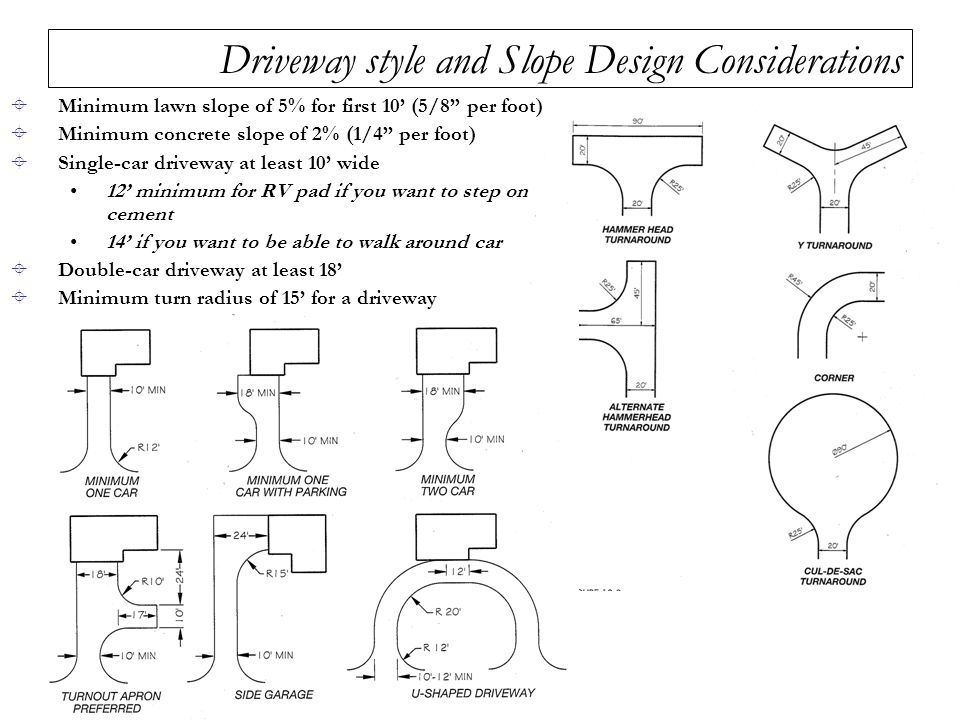
City Permit & Inspection Requirements for Driveways
Do you need a permit for your driveway or sidewalk? The answer depends on the location. Cities such as Tulsa and Broken Arrow both require permits for driveway approaches, new driveways, widening of existing driveways, curb and gutter replacement, and sidewalks within the right-of-way (ROW). Other communities, such as Owasso, do not.
The two most common permits required are residential zoning for widenings/extensions and residential ROW (non-arterial) for approaches, curbs, and sidewalks. Both require inspection before and after placement of the concrete.
Some of the things the inspector will look for are:
- Size and dimensions matches permit description.
- Correct location of right-of-way limit separating the formed approaches and parking slabs.
- Minimum thickness and presence of compacted gravel in approach slabs.
- No presence of reinforcing steel in approach slabs. (No rebar allowed in ROW)
- Appropriately sized and curved curb returns in the approach.
- Expansion joints around sidewalks and against the parking slab.
- Ensure the approach includes the gutter, not just the curb.
- Cross slope across sidewalks (Max: 1.7%-2%)
- Concrete curb cuts are not within 3-ft of neighboring joints.
In order to obtain a permit you must be insured and bonded, so it is usually easier and cheaper to hire an already credentialed contractor to apply on your behalf. Your municipality must have a copy of your contractors CBGL insurance and a bond on-file to issue the final permit.
Neither Tulsa nor Broken Arrow will issue a permit to uninsured or unbonded contractors, so be wary of those who cannot provide you proof of coverage. After all, you’ll be the one left with the citation and required to redo it.

“I received a Notice of Violation from the City of Tulsa. Now what?”
If you received a notice of violation on your driveway expansion, approach, or curb work, the first thing you should do is contact the department that issued the violation and gain a clear understanding of what triggered it. Most of the customers that hire us after receiving a violation notice did not research, were not informed by the contractor of these permit requirements or worse, are misled into believing they are unnecessary.
Tulsa inspectors are cracking down, so don’t be penny-wise and pound-foolish. Failure to obtain a permit for this small area of your driveway could result in you receiving a notice of violation from city, fines, or create problems when attempting to sale or transfer ownership of property. The best thing to do is check yourself and make sure that whoever you hire has the proper knowledge, experience, and credentials.
Get a Free Estimate
Please fill out the form below, and we’ll get back to you as soon as we can.

